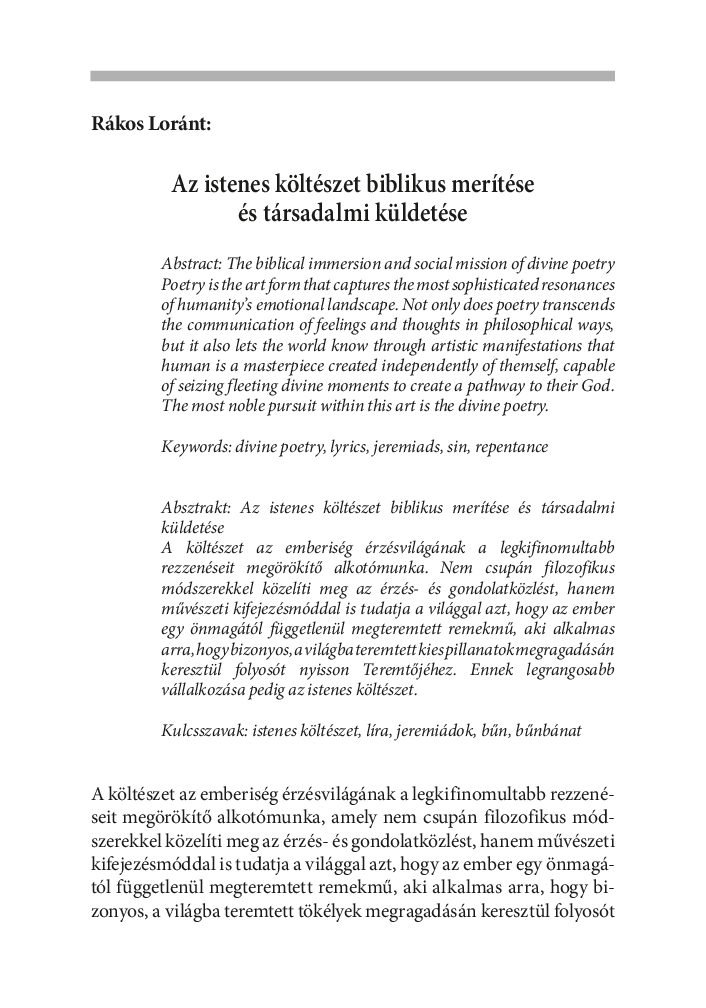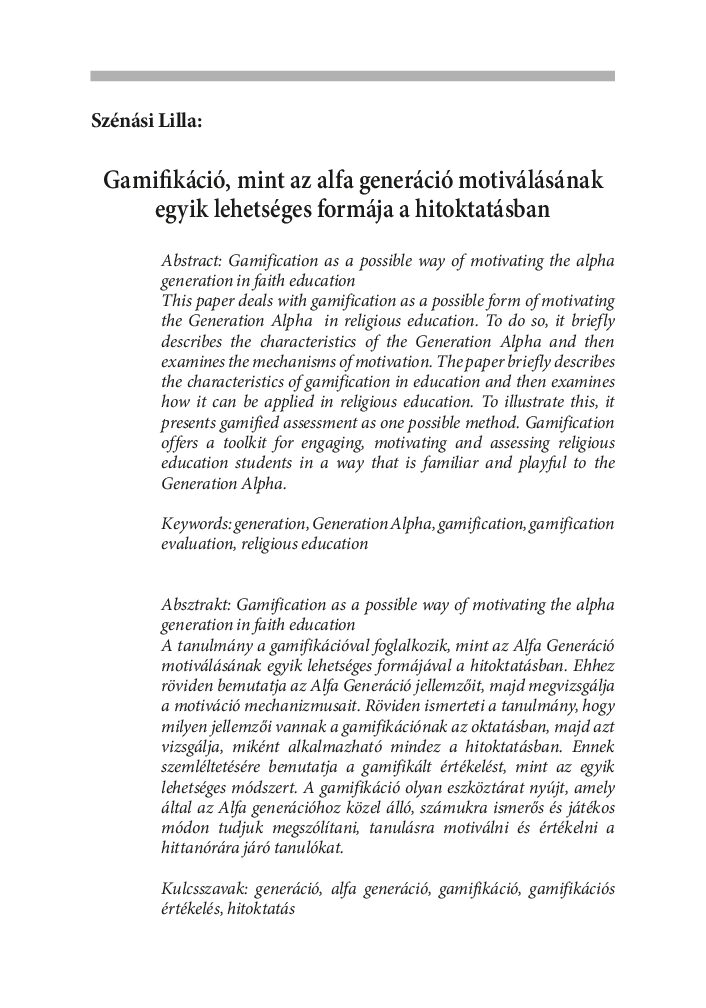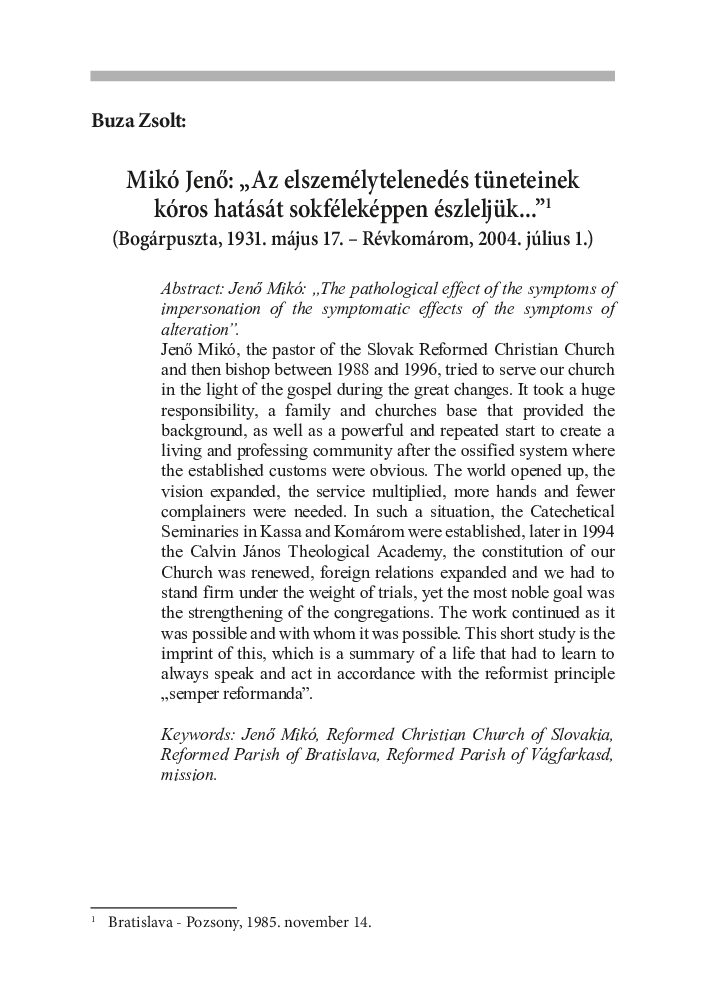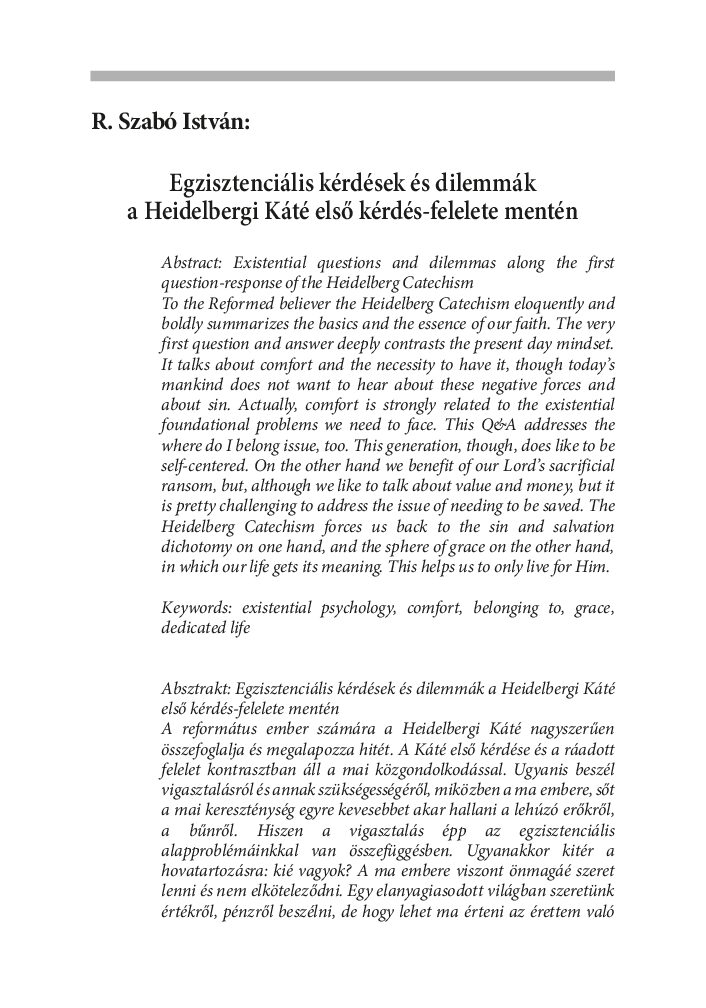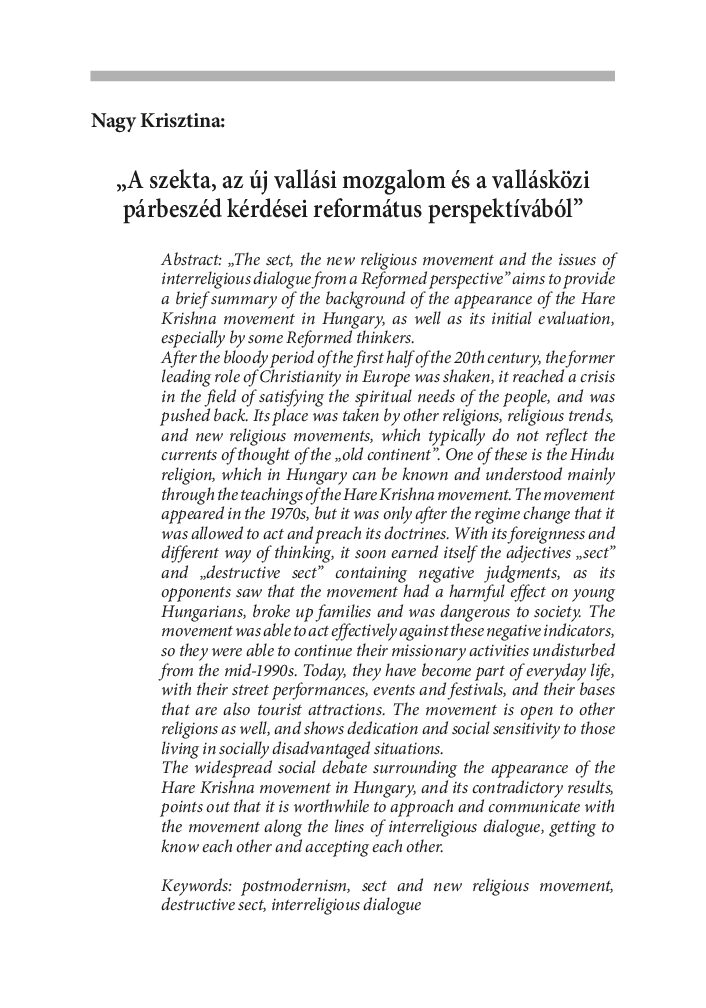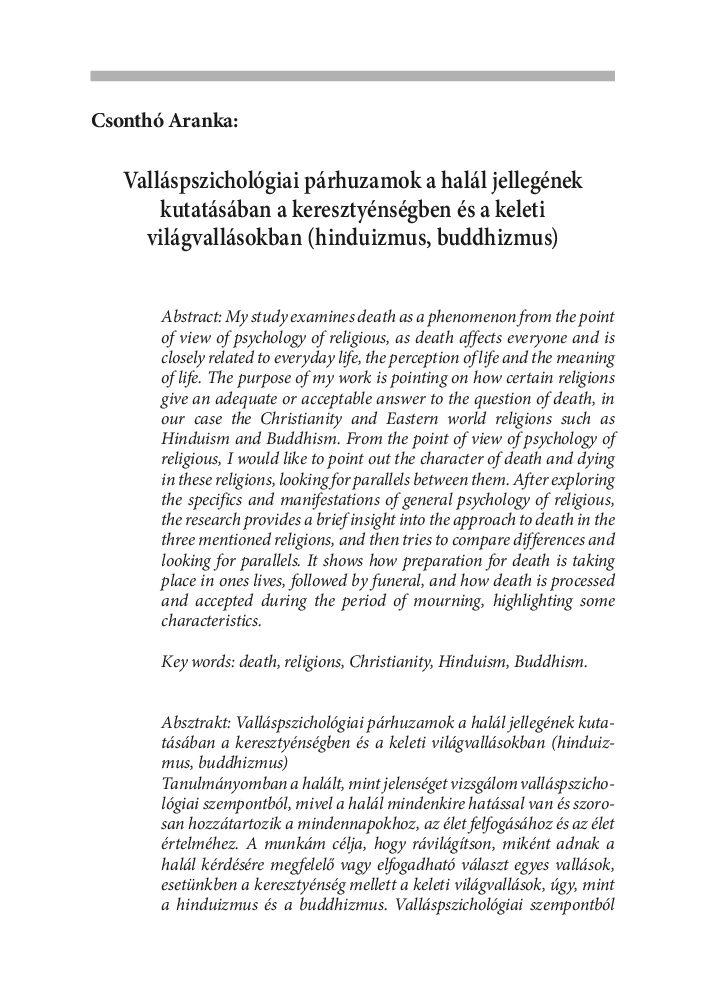Albert András: A vallásszabadság és a vallási tolerancia János Zsigmond fejedelemségében (1559-1571)
Religious freedom and religious tolerance in the principality of János Zsigmond („John Sigismund”) (1559-1571)
The freedom of religion and religious tolerance proclaimed in the16th-century Transylvania was unique in the 16th-century Europe. It was no longer a state religion, the princely power was above that of the church, but it had no right to differentiate between them. The territorial principle announced in the Peace of Augsburg in 1555, „cuius regio eius religio” did not prevail in Transylvania. Several denominations lived together in cities and villages. The landlord of the area had no say in the religious affiliation of his serfs. Everyone decided on their own religion and its practice. Prince János Zsigmond, together with the Transylvanian orders, accepted the principle of free thought and free preaching, unlike in Western European countries, they did not exterminate freedom of religion and conscience with fire and iron, but instead discussed the various tenets and religious differences in religious debates. With the proclamation of the religious peace of Torda in 1568, Transylvanian prince János Zsigmond and the Transylvanian orders favored peace and tolerance against the religious intolerance of the Reformation in Saxony and Switzerland the emerging denominations over the religious intolerance of the Reformation in Saxony and Switzerland.
Keywords: religious freedom, religious tolerance, Edict of Torda, recepta religio, religious disputes.

